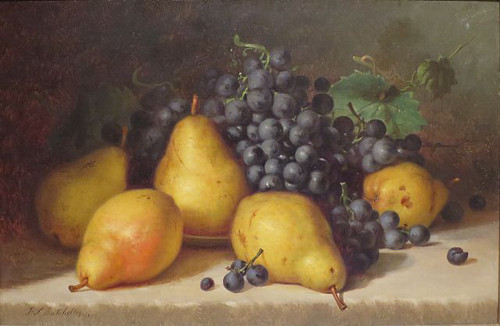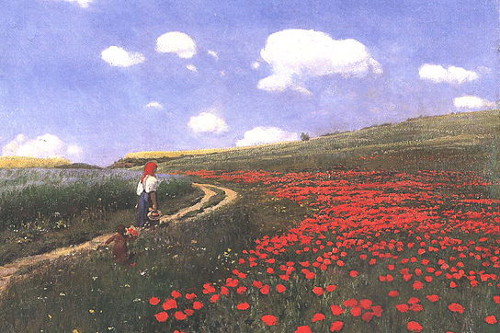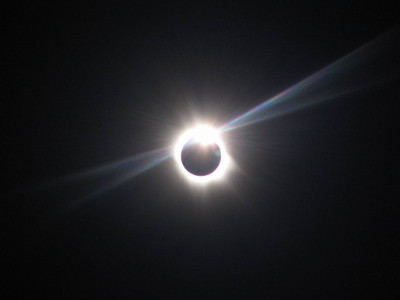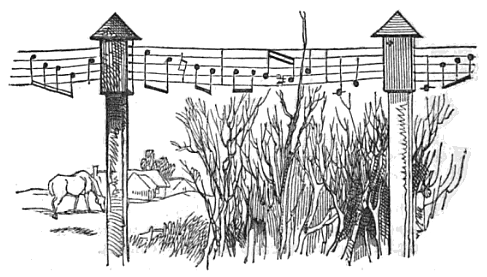slow, But if it breaks it comes down up goes elevator The so.
— Yale Record, 1900-1919
slow, But if it breaks it comes down up goes elevator The so.
— Yale Record, 1900-1919

Auric and I played all that Satie had written for the piano; one of us would play with him what he composed for four hands. Once, after we had played Morceau en forme de poire, I asked our hero, whom we called mon bon Maître, why he gave such a title, Pieces in the shape of a pear, to this ravishing music. He answered with a twinkle in his eyes: ‘You do know that I visit Debussy quite often; I admire him immensely and he seems to think much of whatever talent I may have. Nevertheless, one day when I showed him a piece I had just composed, he remarked, “Satie, you never had two greater admirers than Ravel and myself; many of your early works had a great influence on our writing. … Now, as a true friend may I warn you that from time to time there is in your art a certain lack of form.” All I did,’ added Satie, ‘was to write Morceau en forme de poire. I brought them to Debussy who asked, “Why such a title?” Why? simply, mon cher ami, because you cannot criticize my Pieces in the shape of a pear. If they are en forme de poire they cannot be shapeless.’
— Vladimir Golschmann, “Golschmann Remembers Erik Satie,” High Fidelity/Musical America, August 1972
(Thanks, Dan.)

Let us begin by saying we have nothing but the deepest aversion
Against casting an aspersion
On the beautiful works of Ogden Nash.
In fact we might say we go for his stuff like a vegetarian goes for his succotash.
But the thing that swerves us
From downright admiration is the length of his lines which sometimes look more like paragraphs than lines — frankly it unnerves us.
In fact we have it from unreliable sources
That several people have narrowly missed death by asphyxiation while attempting to read aloud one of these book-length sentences in one breath, all of which forces
Us to request that Mr. Nash please stick to a line that can be written entirely on one page, for when we see one of these endless lines looming up over the edge of the next stanza, we have been known to turn the page and start something else; while on the other hand, when Mr. Nash sticks to a briefer line with definite rhythm,
We’re whythym.
— An unnamed college humor magazine, quoted in Richard Koppe et al., A Treasury of College Humor, 1950
Ernest Hemingway published this “blank verse” in his high school literary magazine in 1916:

Get it? David Morice followed up with this “punctuation poem” in Word Ways in February 2012:
% , & —
+ . ? /
” :
% ;
+ $ [ \
It’s a limerick:
Percent comma ampersand dash
Plus period question mark slash
Quotation mark colon
Percent semicolon
Plus dollar sign bracket backslash
(Thanks, Volodymyr.)

John asked Clara
To take
A walk with him
And pick flowers.
But Clara’s brother
Came along
And so
They picked flowers.
— North Carolina Boll Weevil, 1922
“How old are you?”
“I’m five. How old are you?”
“I’m either four or five. I don’t know which.”
“Do women bother you?”
“No.”
“You’re four.”
— Anonymous, Colorado Flatiron, 1959

— Frederick W. Umminger Jr., Yale Record, 1959

I pass on to Eclipses. When the Moon (see above) gets between the Earth (see below) and the Sun (do what you like), the resulting phenomenon is called an Eclipse of the Sun. When the Sun gets between the Earth and the Moon there will be the devil to pay. It will be called the Eclipse of the Earth and is likely to be total.
— H.F. Ellis, So This Is Science!, 1932

At a dinner party, René Descartes’ wife posts him next to the shrimp table and tells him not to let the guests eat until an hour after midnight. When a guest reaches for a shrimp, Descartes stops him and says, “I think they’re for 1 a.m.”
René Descartes is sitting in a bar. The bartender asks him if he’d like another drink. He says, “I think not” — and vanishes.
“I think, therefore Descartes is.” — Saul Steinberg
There was a young student called Fred
Who was questioned on Descartes and said:
“It’s perfect clear
That I’m not really here,
For I haven’t a thought in my head.”
— V.R. Ormerod
In 1988 German artist Rosemarie Trockel offered a 210 x 160-centimeter linen panel on which the words cogito ergo sum had been knitted — by machine.

As telegraph lines began to appear along London’s railroads, they came to fascinate commuters. One wrote to the Illustrated London News to suggest that cornet lessons might now be given on the moving train.
“The medium of tuition will be the wires of the electric telegraph. On these, being five, notes will be fastened by non-conducting materials, and the pupils will play them as they travel. The andante movements will be placed close to the stations, where progress is slow, and the tunes will be so arranged as to finish at all the stoppages. These will be constantly changed, to extend the benefit to all classes: for instance, galoppes will be chosen for the express trains; sets of quadrilles for the stopping ones; and marches, or dirges, for the luggage trains. At the same time, the passengers, generally, will be diverted with agreeable harmony.”
Another commuter responded: “The great objection is, that the notes once passed could never be taken up again, and especially the high ones; for, before the pupil could get his lips to the necessary embouchure, he would be a mile beyond the bar. A non-musical friend, given to senseless ribaldry, suggests that fugues should be chosen for the music; because, as he says, those compositions never appear to have beginning, end, middle, or anything else, and may be commenced or left of anywhere with equal effect.”
He adds, “It would be better, sir, for you to confine yourself to practical improvements than ingenious but futile schemes. … After my entertainments given in the country, I am usually asked to supper by certain of the leading inhabitants, in gratitude for the amusement I have afforded them; and, from drinking healths, I rise next morning with a dizziness. And then, on my return to town, are the wires of the electric telegraph most dreadful. They go up and down, down and up, for miles and miles, until at last, seeing nothing else, I begin to think that they are stationary, and it is the carriage which is undulating; and this has such an effect, that I am as indisposed upon arriving at the terminus as if I had just crossed the Channel. A little care on the part of the directors can remedy this. Why cannot the wires be turned upright, like those of a piano?”